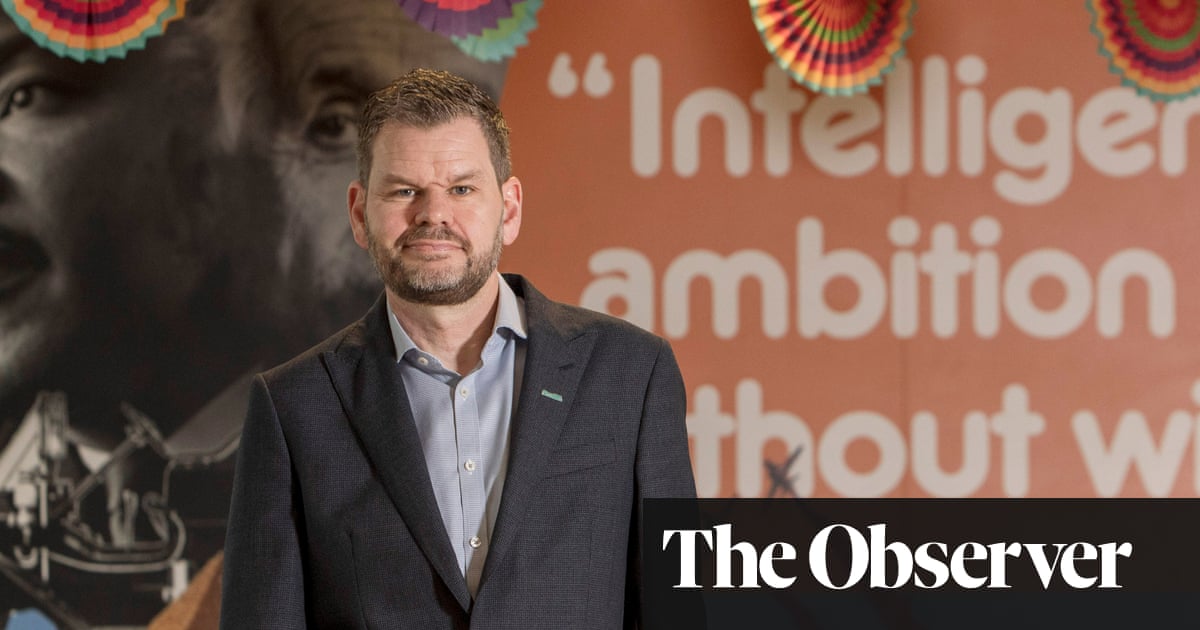
Mass Covid-19 testing should be implemented in schools across England, teachers’ leaders have said, amid fury in the north at the speed at which testing has been rolled out in new hotspots in London and the south-east.
Testing should also be extended to primaries, according to the largest education union, which along with others is calling for the closure of schools and a switch to remote learning before the Christmas break.
“We predict that when this testing happens many children will have to be sent home on public health advice. This will lead in practice to a chaotic closure in the last week of term,” said Kevin Courtney, the joint general secretary of the National Education Union.
He said new Office for National Statistics figures showing coronavirus cases were rising again in secondary and primary schools “should be very worrying to the government – especially in the run-up to Christmas”.
Secondary school children in years 7 to 11 have the highest rate of any of the demographic groups, with more than 2% having the virus.
Questions are also being asked about the selection criteria for hotspots where mobile testing is being carried out in secondary schools and among college students in parts of north-east London, Essex and Kent after a list of the areas was published on Friday by the Department of Health and Social Care (DHSC).
Schools hardest hit by infections included the Norton Knatchbull School in Ashford, where all its pupils began studying at home from Friday until the end of term on 18 December because of absences among staff. Only the children of key workers and vulnerable children were to come in.
Eight out of nine secondary schools in Basildon were also expected to close on Friday night, a week earlier than due, Essex county council’s cabinet member for health told the BBC.
But some boroughs with higher numbers of cases are not listed in the rollout and there was particular anger in the north of England, which has been left to cope without similar mass testing despite rates that got so high that as many as a quarter of all children in Hull were off school last month.
The Labour MP for Stalybridge and Hyde, Jonathan Reynolds, said schools in his area were “livid” and he expected a bid for testing to be successful.
Kate Hollern, the Labour MP for Blackburn, said it was “utter rubbish” for the government to suggest that testing was available to schools outside London and the south-west.
In response to the DHSC claim that tier 3 local authorities can apply for tests, Hollern tweeted:
Jo Platt, the former MP for Leigh in Greater Manchester, also in tier 3 tweeted:
Henri Murison, the director of the Northern Powerhouse Partnership thinktank, said “northern schools have faced the brunt of Covid-19 infections in recent months” but noted only Liverpool has benefited from an extensive programme of mass testing for secondary schools. He expected mass testing to be offered in the north in areas of high infection.
Asked by the Guardian why schools in the north of England were not offered mass testing last month, the DHSC appeared to confirm that while schools in London – currently in tier 2 – and the south-east were being offered tests automatically, tier 3 schools in the north and elsewhere had to apply.
A spokesperson said: “The evidence shows us there is a clear rise in cases in secondary school age children in these areas and we must act to target these rates – about one in three people who have coronavirus have no symptoms and will be spreading it without realising it.”
Geoff Barton, the general secretary of the Association of School and College Leaders (ASCL), also questioned why the government had not chosen to end in-person teaching on the last week of term.
The culture secretary, Oliver Dowden, said on Friday the plans to mass test secondary school and college students had the objective of keeping them in education and ensuring schools were safe. “As a government we are doing everything we can first of all to prioritise kids remaining in schools, and the vast majority of children remain in schools,” he told BBC Breakfast.
In Wales, secondary schools and colleges will move to online learning from Monday following advice from the Welsh chief medical officer that the public health situation in the country was “deteriorating”.












